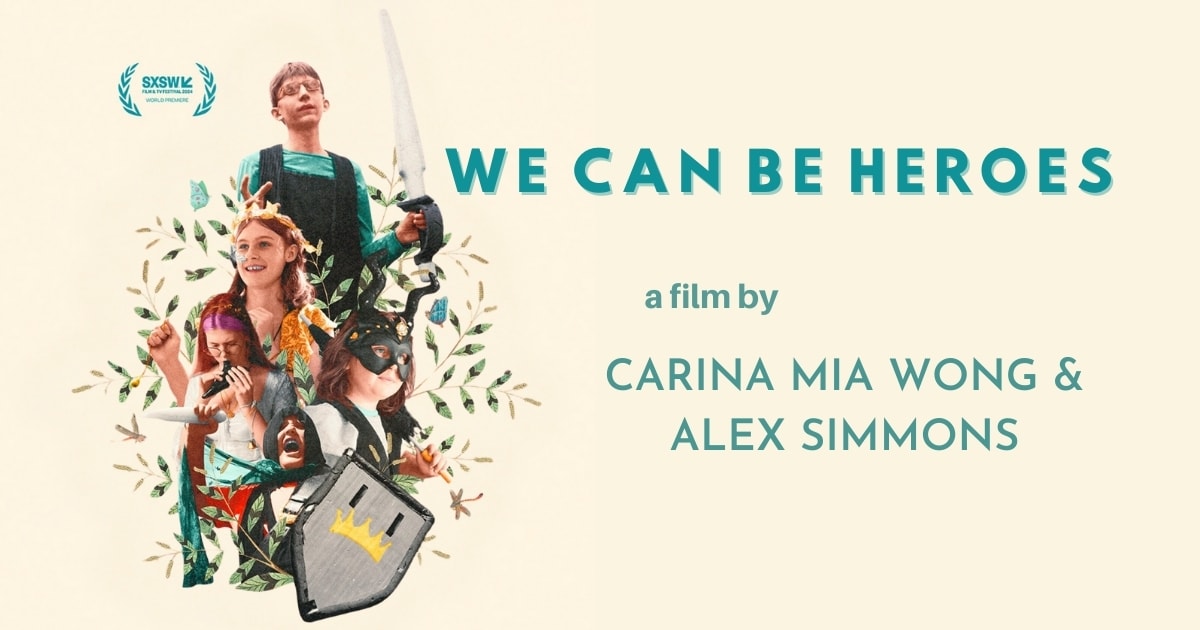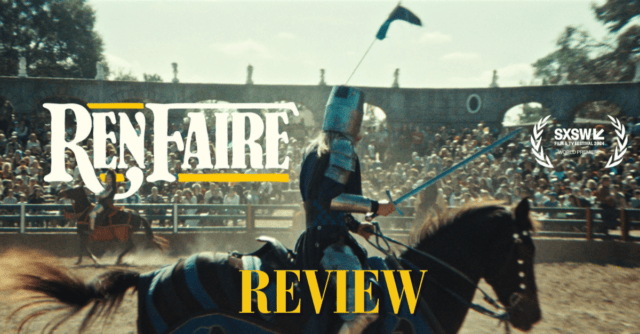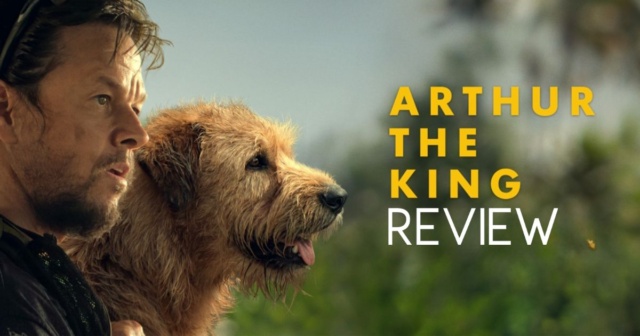Review: ‘We Can Be Heroes’ Documentary About Kids and LARPing

I’m getting to that age where I look at the opportunities teenagers have today and think old person thoughts about what I missed out on as a kid simply because it didn’t exist yet. There’s an entire film program at a local high school where I live that invited me to be a guest judge for their annual film festival last year. “If there had been one of these when I was in high school,” I told the teachers who organize the yearly showcase of student films, “I would have been all over it.” We Can Be Heroes, a documentary which premiered at SXSW 2024, is an infectious and warmhearted look into one such phenomenon.
We Can Be Heroes and the Wayfinder Experience Summer Camp
Filmmakers Alex Simmons and Carina Mia Wong trained their cameras on kids attending Wayfinder Experience Summer Camp. Wayfinder is a LARPing camp (LARP stands for Live Action Role Playing, for the uninitiated) in the Hudson River Valley area of New York state that allows kids the chance to build crucial social skills and practice collaborative problem-solving. They’re also free to get lost in an immersive creative experience where they are the primary drivers of the story.
The documentary can best be described as a real-world version of Molly Gordon and Nick Lieberman’s surprise 2023 mockumentary hit Theater Camp, about a group of outcast kids, and their similarly outcast counselors, at a summer camp for theater geeks.
A story about kids and LARPing
We Can Be Heroes doesn’t spend much time with the adults running Wayfinder because it’s primarily focused on the funny, goofy, and contemplative adolescents who come to the camp to learn something about themselves and each other.
Among the kids that the doc focuses on are Abby, a 17-year-old recently diagnosed with SMAS, which causes her body to be unable to digest food properly. Abby is still getting used to the feeding tube she must wear when she decides to attend the camp. She’s also getting used to the high mortality rate that her condition entails.
There’s also 11-year-old Cloud, an irrepressible youngster who struggles to fit into the camp’s “yes, and…” ethos when he refuses to cooperate with the story in order to cause as much mayhem as possible. Cloud is so determined to have his way that if you squint, you can see Michael Scott from The Office when that character is incapable of playing along with an improv scenario because he’s so focused on being the sole hero of the story.
And then there’s Dexter. A homeschooled kid living in New York City, Dexter is riddled with anxiety about any number of things. He’s ever-vigilant and very concerned about ticks finding their way onto his body. He has a crush on one of the girls at the camp but doesn’t want to cause undue embarrassment to her or himself. So, he refers to his crush (not so) simply as “She Who Shall Not Be Named.”
Simmons and Wong oblige by only ever showing us the red converse high tops of “She Who Shall Not Be Named” whenever Dexter approaches her. The scene when Dexter asks his crush for an exchange of phone numbers, only to be told that her parents don’t allow it, is sweetly heartbreaking in that doomed first love kind of way.
Dexter’s penchant for living deep inside his own head reminded me exactly of myself when I was a kid (and, if I’m being honest, also as an adult, although to a lesser extent). I’m confident that anyone watching We Can Be Heroes will pick out their own surrogate, someone who reminds them of themselves at the same age, to champion during the screening. The filmmakers chose Dexter to be the narrator of the LARP story-within-a-story. His in-story character name, Infernious Nocturna, is inspired.
The story that the counselor writing team of Clare and Claire have constructed is titled The Last Green. It involves numerous warring clans (the kids) who must come together to defeat an evil force that is destroying the natural habitat, threatening to turn the lush and green beauty of this fantasy realm into a desolate wasteland.
Cloud, whose character name is, hilariously, Shard Dorpington, becomes obsessed with stopping the ascent of a fellow camper’s character to leader of the realm. His tactics become so disruptive that Judson, the camp director, with the help of his counselors, convinces Cloud to turn to a more manageable version of the dark side. He becomes Luna, a trickster god within the story.
That improvised solution points to one of the strengths both of the camp and the documentary. The counselors and filmmakers take great care to validate these kids’ feelings and perceptions. Everyone is encouraged to be their authentic selves, as long as that doesn’t cause harm to anyone else.
SXSW 2024: My Must-Watch Screenings and Premieres
The filmmakers about being sensitive to the kid’s needs in the documentary
Simmons and Wong spoke at length in the post-screening Q&A at SXSW about being adamant in not poking fun at the kids, but rather letting them shine. They checked in with the kids as they were putting the finished film together to make sure that any one scene didn’t make a participant feel belittled or mocked. The result is a triumph in empathetic storytelling.
The directors also use clever filmmaking techniques to draw us into the LARP story throughout their picture. As we hear Dexter’s (post-production sweetened) booming voice to narrate the plot, the film slowly transitions to a wider, more cinematic aspect ratio and the color grading changes to give it a more epic feel. One of my few complaints with the film is that we don’t spend enough time in the story-within-a-documentary, so I never got a clear handle on the particulars of what the kids were experiencing.
Final thoughts on We Can Be Heroes
One thing I did appreciate is the camp’s final exercise of the week-long adventure. The kids are instructed to lie on the ground with their eyes closed. Each counselor, and eventually each camper, makes their way around the group, asking if the person they are speaking to will accept a word of appreciation. We see one counselor express appreciation to Dexter for pushing his boundaries and not freaking out when he did, in fact, find a tick on his hand.
We Can Be Heroes offers a brief 86 minutes of respite from a world that seems intent on making us all feel terrible about everything. We don’t only see the kids learn and grow over the course of the best week of their lives. The movie is also a lesson from both the counselors and the campers to us about lifting each other up and making everyone feel welcome and included.
Review: HBO’s Ren Faire A Docu-Fantasia Full of Power Struggles





